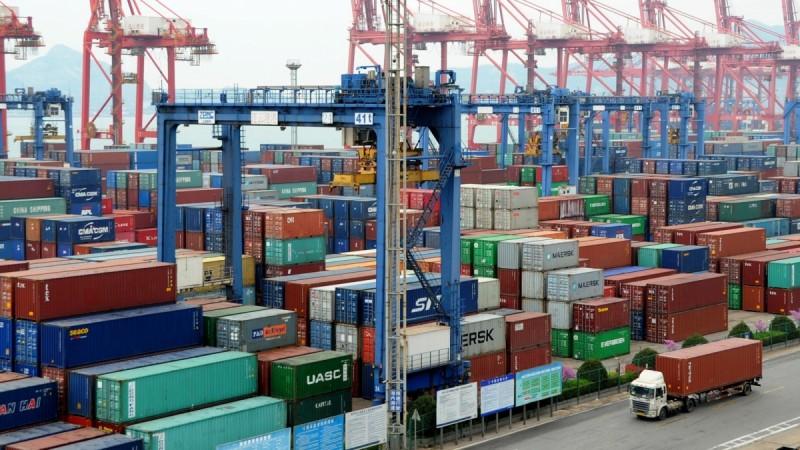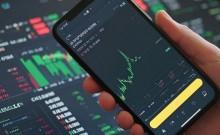
In what looked like a tariff war directed at improving trade balances, has now ballooned into a tussle on broader economic relationship. The US has brought up more contentious issues like intellectual property rights, technology transfer, and what the US calls illegal state subsidies to Chinese exporters. The on-going trade-tussle between the US and China has much deeper implications not only for the global trade environment but also for the flow of capital. The adverse impact on the global economy as a whole may be much larger than what we thought of a few months back.
Since China's "coming out" in 1978, through building world class infrastructure, actively seeking foreign investment, championing of local firms, and emphasis on exports, it has built the largest manufacturing base in the world. Given the fact that China is deeply embedded into the global supply chains, and is a global low cost manufacturing hub, the repercussions of this trade war could be severe if it escalates beyond a certain point.
Till recently the market took comfort that the tussle was limited to tariffs. However, when the Trump administration's measures led Google to deprive Huawei of its Android Software and related services, the trade wars are in uncharted waters. Google was soon followed by others like UK-based chip designer ARM, Microsoft, Panasonic in restricting activities with the Chinese telecom giant. This move by the US indicated it would not shy away from using its dominance over technology and software exports as leverage in negotiations. It is important to remember that Huawei has been accused of using its networking equipment to help the Chinese military spy on others.
However, Trump also indicated that Huawei could be part of future deals, provided some conditions are met, this reprieve was accompanied by a strongly worded message to China. It allowed Huawei to use these products till August-end. While China on its part has imposed some tariffs it has indicated it could use its dominance in certain items like Rare Earths as a negotiating tactic. It does have more options; for instance, it could restrict import of aircrafts (Boeing) from the US. However, it does appear that the Chinese have misread the resolve of the Trump administration to tilt the economic relationship of the US and China back to a more balanced one.
The global financial crisis has often been compared to the great depression of the 1930s, while the two economic crises may not be comparable in all respects; there are important similarities. The most relevant one is the trade wars that followed the onset of the great depression. The US through the Smoot–Hawley Tariff Act of 1930 imposed tariffs on most imported goods. This resulted in other countries imposing tariffs as well. Many economists believe that these tariffs not only worsened the crisis but also delayed economic recovery. The fear is trade wars could escalate to a point where it causes widespread economic damage.
I believe, however, that we are far from that point, but the thought is scary. For instance, China can take advantage of it being the largest creditor to the US and dump some of the treasuries it holds or significantly prune its future purchases. This could be detrimental not just to the global capital markets but to China as well, and perhaps China would avoid such a move. China for sure may allow its currency to depreciate against the US dollar in order to offset the impact of tariffs partially.
This shows how deeply the world is connected. For instance, Western Europe and US have held close security relationship since World War II and have close trade relations as well. However, China is a growing market for Europe making it hard for them to choose sides. While a full-blown tech-war will increase Germany's value as USA's ally, it will squeeze out the rest of the EU members who are dependent on China.
According to the latest statistics, China is the world's largest exporter having shipped $2.3 tn worth of goods across the globe in 2018. While China's Asian partners consumed the lion's share of 47.8% of these exports, 22.4% was exported to North America, 19.2% was consumed by Europe. In May 2019, China's global trade surplus soared to $41.66 bn vs. $23.42 bn in the previous year.
What has driven the US to slap these tariffs is the trade deficit with China which was ballooning and stood at USD 383 bn in 2018. USA is the largest importer of Chinese goods globally. Interestingly South Korea is the most import dependent on China by importing 11% of its total imports from China. South Korea is followed by Japan (9.8%) and the US (9.2%). However, South Korean import of Chinese goods reflects supply chain integration, whereas US imports of Chinese goods represent largely final consumption.
To add to the complexity, the war now has been extended to services like finance and capital markets. Given China's immature capital markets and inability to handle large capital issues, China has increasingly relied on the US capital markets. For instance, Alibaba's IPO was in the US in 2014, today 174 other Chinese firms aggregating a market cap of $394 bn have their main listing in the US. The poor corporate governance standards of Chinese firms have been a concern to US investors and the SEC.
Restrictions on M&A have added another dimension. For instance, Ant Financial, Alibaba's payment affiliate was blocked from acquiring MoneyGram, a US-based fintech firm on security grounds. A new law called FIRRMA would require foreign purchases of critical technology in the US to get prior regulatory approval.
While this is not directed explicitly at China, it is perceived as a tool to clip China's growing clout as an emerging global technology powerhouse. In fact, this prompted Alibaba to consider second listing in Hong Kong. While this shows China's efforts to reduce dependence on the US capital markets, Chinese financial firms have already made inroads into the global capital markets. For instance, in 2018, 7 of the top 20 underwriters were from China, and Chinese banks are among the largest cross-border lenders in Asia. During 2018, Hong Kong saw more money raised through new listings – approximately $ 37bn.
While one may argue with the means, it is hard to argue with the end result that the US wants to achieve. China's intellectual property regime should be of concern to not only the US but to other countries as well. Many have accused China of reverse engineering products from other countries and then manufacturing themselves, harming the original innovators.
Under the current leadership, China is getting more aggressive. China is now using its economic muscle, for instance through the One Belt One Road (OBOR) program to acquire foreign assets cheaply. Under a more aggressive leadership in China, this has serious security implications, especially for China's immediate neighbours and the rest of the Australasia region. All this means that it is in the world's interests to see that the balance is restored in the economic and political relationship between China and the rest of the world, and countries (especially Asian) should back the US led efforts in their own long term interests.
While the US and China may reach an agreement sometime over the next 12 months, it is clear that the globalization as we know it is set to change. The ongoing global trade tensions are slowly but surely causing a shift in the global supply chain and payment mechanisms. Companies are realigning themselves by reducing exposure to companies that are likely to face US sanctions. While the shift in the global trade system is a long drawn process western manufacturers are thinking of options. These involve an acceleration in shifting of manufacturing to South East Asia (Vietnam, Cambodia) or South Asia (India, Bangladesh). Another option would be to shift manufacturing back to the US; something Trump certainly hopes for, unfortunately, a shift back to the US would involve automation and not create many jobs.
In whichever way one looks at the current scenario, it seems that here is a definite move by all country to become more insular and this is perhaps the shape of things to come. Globalization 3.0.
[Rajiv Singh is the CEO of Karvy Stock Broking. The views and opinions expressed in this article are those of the author and do not reflect those of International Business Times, India]










![Nothing to open its first global flagship store in THIS Indian city [details]](https://data1.ibtimes.co.in/en/full/827007/nothing-open-its-first-global-flagship-store-this-indian-city-details.png?w=220&h=138)






